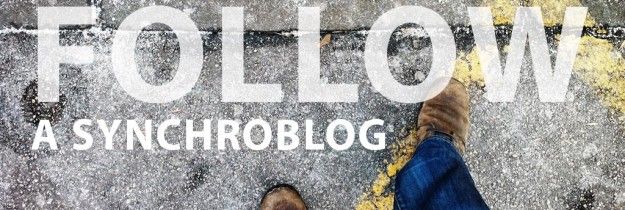
This post also is part of the August synchroblog on Provoketive magazine.
In practical and academic theological circles it's popular to ponder, write, consider, and act upon the meaning of following Jesus, especially following Jesus to the cross. You read scripture and start to realize going to the cross of Calvary means resisting death-dealing secular and religious bureaucratic and "other" assorted authorities, rejecting anything but love and justice as the measuring line, disallowing all that's other than righteousness as the plumbline; after a few years of living out our baptism, we start discovering Resurrection Sunday morning is every bit as demanding as Good Friday afternoon. It's easy to take pride in demonstrating visibly for ecclesiastically popular causes, maybe getting onto the evening news, feeling good about ourselves for sometimes getting too involved with concerns not popular with our local judicatories. Soundbite on the late night news, anyone? Spending a season with Mother Teresa's peeps or serving Thanksgiving dinner at Father Joe's place. Those bigger, more obvious, more stars-in-our-crowns activities. And for the most part, they're all good. Often very good and life-transformative.
But in the ambient heat and humidity of mid-summer 2012, I like to remember Jesus partying with friends and with strangers. A spontaneous feast because they'd hauled in a big catch, had freshly baked bread, and the grapes were ripe and juicy. Or a quick roundup of "whatever" resources because so many hungry people had surrounded them. I love stories of Jesus making sure everyone got enough to eat, commanding and demanding his disciples feed others, too. I love how we keep celebrating holy communion, the sacrament of the welcome table, the holy eucharist, with each other. More than simply "liking" the way potluck dinners, annual picnics, and strawberry ice cream socials have becoming close to definitive for the church. Ever attended a new to you church that didn't have an after worship (or between services) social hour? It's all about gathering, talking, relating, feeding, eating, and being fed. And we're not likely to keep on performing an action unless it has meaning, unless it says something to us and about us, unless it meets a basic need.
A religious ritual? There are plenty of those. To remember Jesus, do we need bread and wine? Do we need potlucks and picnics? Throughout the records of Jesus' life we find accounts of Jesus feeding other people and feasting with his friends; Jesus repeatedly talks about those who will banquet in the Kingdom... and about giving his body for the life of the world. But is that gift of a body broken unto death for the life of the world the whole, entire thing?
In feeding friends and strangers, in celebrating bounty of the sea, gifts from the ground, and fruit of the vine, Jesus reveals a worldview that's at a 180-degree angle to most common ideas of religion and religiousness. We find loving justice, mercy, and embrace graciously at work wherever Jesus goes, wherever we follow him into the world so hunger, greed, need, judgment, and exclusion are wiped out.
Like Jesus will we actively search for the lonely, the different, the outcast, and the stranger, welcoming them not only to our more formally scheduled eucharistic liturgies (well, turning them out of the narthex, back into the street would be awkward), but also—
• afterwards at social hour (no snarkiness allowed),
• week night potlucks or annual picnics (I brought enough for everyone and would love to try your special dish),
• ice cream socials (we've never done it that way, but we'd love to try your way)?
Will we be making our worlds, our neighborhoods and our churches into sanctuaries, holy places, into a foretaste of the reign of God on earth? Will we follow Jesus by including everyone, excluding no one? Will the world recognize us as the body of Christ when we pour out our everyday lives with compassion just as we pour out the eucharistic wine?

No comments:
Post a Comment
thanks for visiting—peace and hope to all of us!